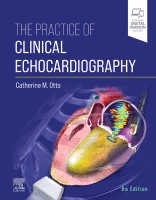Physical Address
304 North Cardinal St.
Dorchester Center, MA 02124

Despite the reduced incidence of rheumatic heart disease, the prevalence of mitral regurgitation (MR) is increasing and is anticipated to continue to increase as the population ages. The management of advanced valvular heart disease, once the unique domain of cardiac…

The superiority of mitral repair over replacement for treating primary mitral regurgitation (MR) is well established. , In appropriately selected patients, mitral repair is also optimal for treating secondary MR. Transesophageal echocardiography (TEE) is ideal for identifying reparable mitral valve…

Mitral regurgitation (MR) is a common valvular disorder that is a significant cause of morbidity and mortality in cardiovascular disease. Population studies have estimated the prevalence of mild or greater MR to be 20%. More than 30,000 patients undergo mitral…

Background Aortic regurgitation (AR) is characterized by diastolic reflux of blood from the ascending aorta into the left ventricle (LV). The clinical presentation varies and depends on several factors, including acuity of onset, aortic and LV compliance, hemodynamic conditions, and…

Disease Stages Aortic stenosis (AS) is the most common valvular heart disease in developed countries. Aortic sclerosis, the precursor of AS, occurs in more than 25% of patients older than 65 years of age. The prevalence of AS increases with…

Applicable Modes of Echocardiography in the Coronary Care Unit Transthoracic echocardiography (TTE) is ideally suited for cardiac imaging in the coronary care unit. It offers major advantages compared with other imaging modalities, including its portability, its relative low cost, and…

Stress echocardiography (SE) is a mainstay of ischemic heart disease diagnosis and risk stratification. For diagnosis of coronary artery disease (CAD), various stressors (e.g., exercise, pharmacologic agents, pacing) are used to create an imbalance between oxygen supply and demand, resulting…

Exercise Echocardiography for the Diagnosis of Coronary Disease Stress echocardiography—exercise or pharmacologic stress electrocardiography (ECG) coupled with echocardiography—is the most specific and sensitive method to noninvasively identify patients with inducible myocardial ischemia due to coronary artery disease (CAD) without the…

Cardio-oncology is a growing field aimed at recognizing, monitoring, and treating cardiovascular complications resulting from cancer and cancer-related treatments. Echocardiography plays an essential role in the baseline assessment and serial follow-up of oncology patients and remains the test most often…

Although relatively few in number, pericardial diseases have a multitude of causes ( Table 17.1 ) and may have life-threatening effects. They frequently masquerade as other diseases and may be missed if not considered in the differential diagnosis. Treatments are…